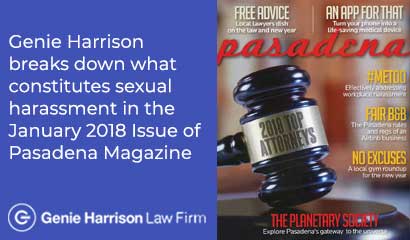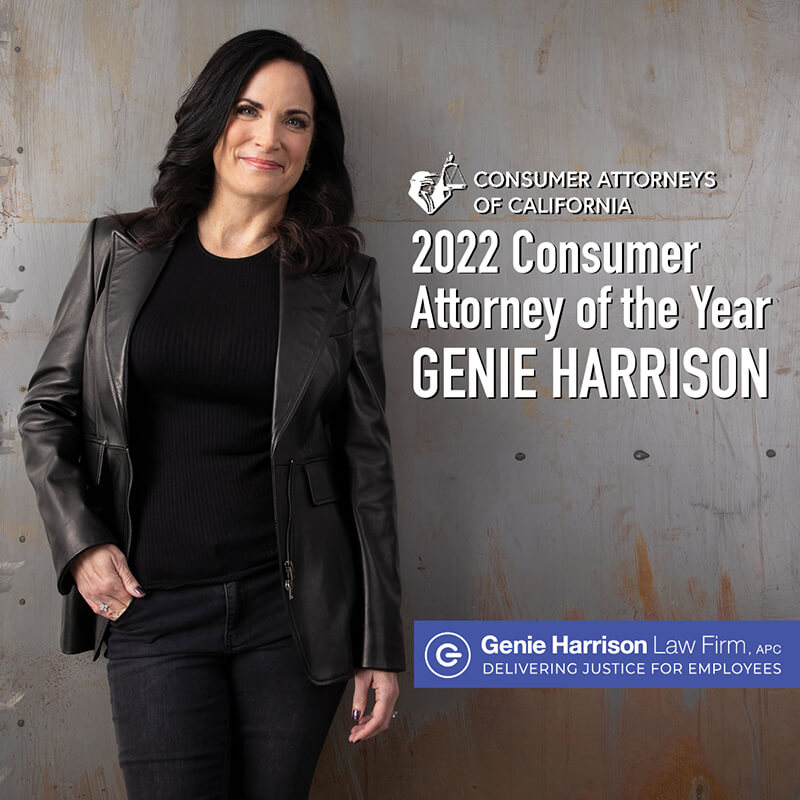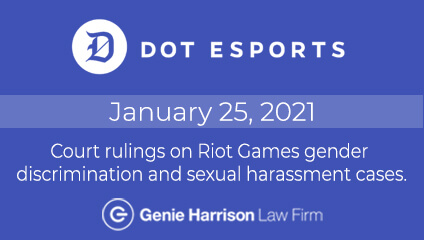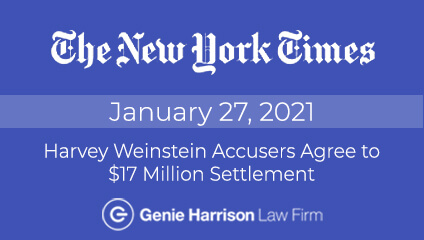When Saying No Isn’t Enough
Story by Sara Smile
Sexual harassment isn’t exclusive to Hollywood. Lawyer Genie Harrison breaks down what constitutes sexual harassment, and what you can and should do about it.
Sexual harassment in the work place, and particularly in Hollywood where “the casting couch” has become an accepted cliché, had long been condemned publicly, while the private reality was often ignored, if not sanctioned. When Bill Cosby, a beloved Hollywood and TV icon, was credibly accused of sexual assault, a media circus ensued. Yet many denied that America’s “family man” could be capable of such heinous behavior. Then, more women came forward. And more. Sharing their own experiences with sexual harassment, their stories added fuel to a long summering fire that began sparking into flame around November 2016 with the presidential election. When Harvey Weinstein, one of Hollywood’s powerhouse producers, was accused, the conflagration could no longer be contained. Today, the dominos continue to fall as both male and female victims take back their power by coming forward publicly in social media and the press.
Employment and victim’s rights lawyer Genie Harrison, of Genie Harrison Law Firm, is an advocate of workplace rights — including the right to feel safe from unwanted attention. “The way I like to describe it is we help victims recover. We represent people whose rights have been violated and who have suffered tremendous consequences as a result,” says Harrison.
Harassment can be verbal or written — including everything from cell phone texts or verbal comments or emails, videos and even Snapchat messages. “Anything you can think of that would be [a method of] communication that is essentially derogatory,” Harrison simplifies.
A common type of workplace harassment is quid pro quo harassment which, according to Harrison means “a person who is in power, a supervisor or boss, demands some kind of sexual favor in return for terms and conditions of employment like you get hired if you have sex with the [supervisor] or give them sexual favors or you don’t get fired, or you get promoted or you get a better assignment because of that.”
Less enlightened individuals among us continue to intimate that only young provocatively dressed women are sexually harassed — a belief that Harrison calls, “offensively false.” Harrison explains “Sexual harassment is an abuse of power, so it happens to people who have less power than the person engaging in the harassment.” Though less common, the abuse can affect men as well. “It can happen between a man and a man or a man and a woman, or a woman and a woman. Any combination. It is more typical, I think more prevalent, that men sexually harass women, but it happens in any combination.”
Nowadays, it seems that each week a famous face is being outed as an alleged sexual harasser. But why did it take so long for the victims to come forward? And what does that mean for the average Joe — or Jane?
“It reached a tipping point,” Harrison suggests, alluding to the 2016 presidential election as a contributing cause. “Women started talking about [being sexually harassed] more and more. In addition, now with social media, with #MeToo, and “We Said Enough” [campaign] and all of these movements, we’re able to call people out and support one another.”
Wherever an asymmetric power relationship exists — the definition of many, perhaps most, workplace situations — the potential for abuse and harassment exists, and despite the recent media attention, it’s no secret that sexual harassment has been an issue employers have been dealing with for decades.
“I’ve been a lawyer handling these kinds of cases for 25 years so it’s been happening every year,” notes Harrison. “Women and men who’ve been victimized have been coming forward every year. What’s happening now is that people are coming forward in sort of a critical mass with numerous victims and accusations against a single individual.”
Wherever an asymmetric power relationship exists — the definition of many, perhaps most, workplace situations — the potential for abuse and harassment exists, and despite the recent media attention, it’s no secret that sexual harassment has been an issue employers have been dealing with for decades.
For anyone currently experience unwanted touching or slurs, there are actions you can take. “They need to document what’s going on, that means take notes and try to write down to the best of their ability what has happened, and hopefully, if they can, with their best estimates of dates, witnesses and the specific words that were said by the perpetrator. Try and include the specific incidents and conduct of the perpetrator including where — and exactly what happened, to the best of [the victim’s] recollection. Speaking up is difficult, but it is important. “If they feel comfortable doing so, report it,” Harrison continues. “Report it at work if they can, to anyone they possibly can — HR, their boss, the CEO, a woman in power. If they are not comfortable reporting it at work, then report it to their doctor, the police. If it’s a sexual battery they need to report it to the police as soon as possible. Report it to loved ones. People who can testify. The stories that we’re hearing [in the news] are corroborated based on the fact,” says Harrison.
It’s important to keep in mind, even if the harassment occurred in the past, it is never too late to do something about it. “It is always the right time to do something,” Harrison emphasizes. “Even if the statute of limitations has expired on your own personal claim, you can still come forward and report it and hopefully prevent it from happening to somebody else. And hopefully there will be consequences in a workplace even if there is no longer the ability to bring an actual lawsuit. So, it is never too late and what’s happening in the legislature now is hat there’s discussion about extending the statute of limitations on claims fo sexual harassment.”
Sunlight, the say is the best disinfectant. As more and more victims find the courage in solidarity to come forward, and shine a light on their harassers, talented, principled attorneys, like Genie Harrison, are able to hold these perpetrators, once hiding in plain sight, to account. #
Download a pdf of the entire story that was published in Pasadena Magazine >







